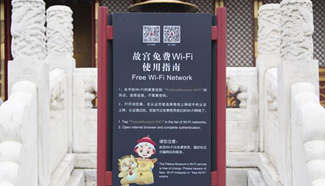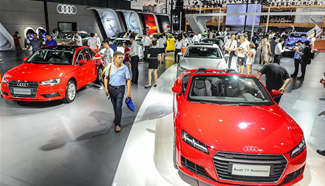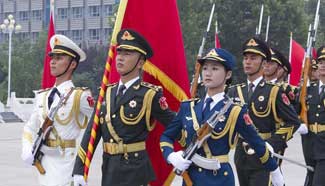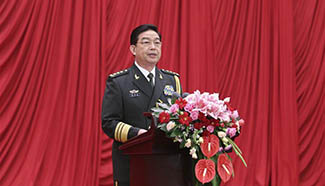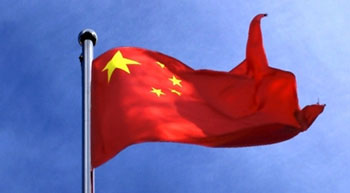CHONGQING, Aug. 1 (Xinhua) -- Chongqing Municipality in southwest China has seen a boom in foreign trade in recent years, primarily due to the extensive expansion of its transport network.
The Yuxin'ou Railway, which starts in Chongqing and ends in Duisburg, Germany, opened in 2011 and has seen a growing number of journeys every year since. The name of the railway is an acronym consisting of Yu (Chongqing), Xin (Xinjiang) and Ou (Europe).
A total of 16 cities now receive regular freight on the route, and the line transports about half of all rail freight between China and Europe, said Luo Shuquan, chairman of the board with the Chongqing Western Logistics Park, which operates the railway.
"As trade on the east coast faces difficulties, inland cities like Chongqing are expanding their roles in foreign trade. It is no exaggeration to say the age of sea is giving way to the age of land," he said.
In the past five years, import and exports in Chongqing, a regional economic center on the upper reaches of the Yangtze River, have grown by more than a third every year, according to recently released trade statistics.
Last year import and export values reached 464 billion yuan (about 71.4 billion U.S. dollars) in Chongqing, almost five times the 2010 figure.
"In the past few years, Chongqing has been building land, air and water transport networks to facilitate logistics and trade," Luo said.
Provinces such as Henan and Shaanxi are also following suit to boost foreign trade, he added. Both provinces posted double-digit growth in their total import and export values last year.
Chongqing transport authorities said that the cargo handling ability of ports in the municipality will rise from the current 180 million metric tons per year to 220 million metric tons by 2020.
Trains depart from Chongqing at least three times per week, and in peak season this can rise to seven times per week. For the return journey from Duisburg, trains depart between two and five times per week.
In 2015, a total of 257 freight journeys were recorded on the Yuxin'ou route, and that number will increase to 300 this year, said Yang Liqiong, director of Chongqing Logistics Office.
Initially transporting just IT products, the railway network has now expanded into auto parts, cosmetics, frozen food, wine, coffee and more.
"With growing demand, rail freight will increase every year. And as costs are lowered, rail freight become as competitive as other means of transport, such as air and maritime," Yang said.
From 2014 Chongqing was given approval by the central government to import vehicles via rail from Germany. The journey takes 13 days from Duisburg to Chongqing, saving two thirds of the time it would take to ship them, resulting in significantly lower logistics costs. In June, 600 BMW vehicles arrived in Chongqing via the Yuxin'ou railway.
Wu Xi, a resident of Chongqing, received his new car just 20 days after he placed his order, a journey that would have taken two months by sea.
"Growing trade between Chongqing and Europe has brought convenience to buyers," said Wu.
China has made the opening-up of inland provinces one of its top priorities, said Chi Fulin, director of China Institute for Reform and Development.
"Central and western provinces have great potential to tap foreign trade as a growth point," he said.
Related:
China's foreign service trade deficit widens in June
BEIJING, July 27 (Xinhua) -- China's deficit in foreign service trading widened in June, according to data from the State Administration of Foreign Exchange released Wednesday.
Income from foreign services stood at 22.3 billion U.S. dollars in June, while expenditure was 41.7 billion U.S. dollars, resulting in a 19.4 billion U.S. dollar deficit. Full Story
WTO concludes China's sixth trade policy review
GENEVA, July 22 (Xinhua) -- The sixth World Trade Organization (WTO) trade policy review of China came to a close here on Friday, with members highlighting the vital role played by the country in the global economy as well their desire to see deeper reforms in a number of areas.
"China being the biggest merchandise trader in the world, one of the largest recipients of Foreign Direct Investment (FDI) and the top trading partner for over 120 countries and regions, its policies can have a huge impact on the global economy," said Irene Young, Chairperson of WTO's Trade Policy Review Body (TPRB), in her concluding remarks. Full Story

